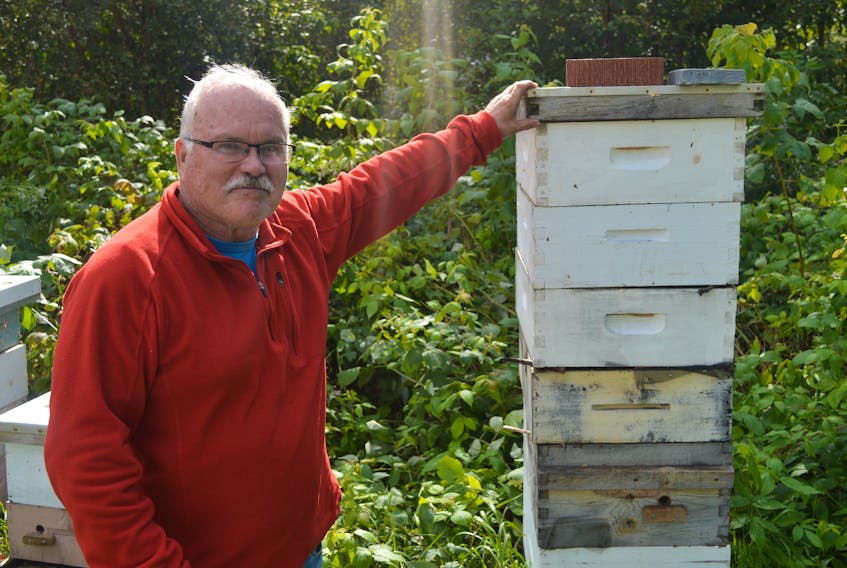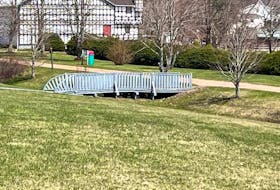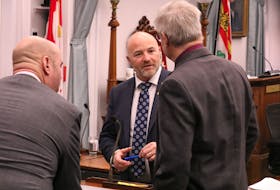CHARLOTTETOWN, P.E.I. — Charlottetown city council has ended its sting operation with the bee population.
Council voted 9-1 at its October public meeting against creating an amendment that would see the definition of livestock in the city’s nuisance bylaw include bees, thereby limiting the number of beehives in residential areas.
It was the second and final reading for the bylaw amendment that would have, if passed, prohibited anyone living in an R1 residential area from having beehives on their property.
The intent of the bylaw was to prevent residents from having stacks of hives piled on top of one another and not little things like bee hotels that many gardeners have.
Monday's decision was an about-face for council, which had voted 8-0 last month in favour of the amendment on first reading.
Coun. Mike Duffy, one of the councillors who reversed his vote, said a number of factors played into the sudden change of heart.
Duffy said the city received a lot of emails from people who were critical of the effort to limit the bee population. He added that since first reading some members of council had discussed the fact the city had given the Urban Beehive Project, located behind the P.E.I. Farm Centre on University Avenue, some funding a couple of years ago and following that up with a decision to limit the bee population would be contradictory.
Duffy added that he watched a documentary on television last week in which a researcher said the bee population was down by 40 per cent in North America.
“It was a conversion of a lot of information, opinion, colliding theories and schools of thought,’’ Duffy said. “No one has really defended the idea of limiting the bee production in the city.
Council had no choice (but to reverse its vote). All the information was leading to ‘no, we don’t want to go down this path’.’’
Coun. Terry MacLeod, chairman of the environmental and sustainability committee, agreed, saying councillors did some homework between the first and second readings.
Coun. Bob Doiron, chairman of the protective and emergency services committee that brought the resolution to council in the first place, said the whole idea behind the bylaw was to prevent residents from putting stacks and stacks of beehives in their backyards or next to, for example, a day care.
“There were some concerns brought forward by a number of residents that were worried that beehives were going to be put in backyards (near) children . . . that were allergic to bee (stings),’’ said Doiron, the lone councillor to vote in favour of the amendment on second reading.
Doiron’s committee brought the issue forward based on a recommendation from Charlottetown Police Services Chief Paul Smith, whose department handles the nuisance bylaw and had fielded a number of inquiries about where people were allowed to have hives in the city.
Doiron noted there were a number of exemptions in the bylaw and that the only point was to limit them in residential neighbourhoods.
“We thought it was a good and reasonable (move) and, all of a sudden, it went to council (Tuesday) night and it was a complete turnaround.’’









